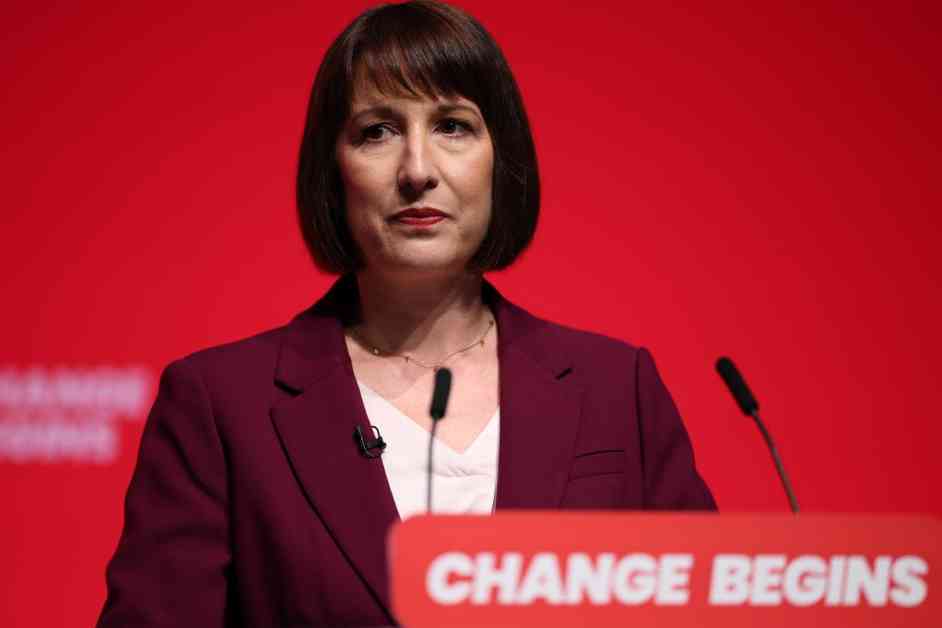Labour’s flagship non-dom tax policy may face potential changes as experts warn that the measure might not generate the expected revenue. The policy, announced by Rachel Reeves before the election, aimed to abolish the controversial “non-domiciled” tax status to raise approximately £1bn in the first year. While the Conservatives also planned to eliminate the tax status, Labour proposed a more aggressive approach. Their manifesto promised to abolish the status once and for all, with the funds redirected towards initiatives like increased NHS appointments and free primary school breakfast clubs.
Research conducted by the London School of Economics (LSE) indicated that removing the special exception could result in a potential annual revenue increase of over £3.2bn for the government. The study suggested that only 0.3% of individuals with non-dom status would leave the country in response to the policy change. However, Treasury officials expressed concerns that the Office for Budget Responsibility (OBR) estimates might suggest otherwise, potentially leading to the policy failing to generate any additional funds due to non-domiciled individuals departing the UK. The OBR’s initial analysis aligned with the LSE findings but emphasized the uncertainty regarding the impact of wealthy individuals leaving the country or finding ways to avoid the changes.
Experts had previously cautioned against the potential consequences of the non-dom policy when it was announced by Ms. Reeves. The Institute for Fiscal Studies highlighted that there are approximately 37,000 individuals benefiting from the non-dom tax exception in the UK, collectively contributing £6bn in taxes. Any significant alteration to the policy could prompt many of these individuals to leave the country, resulting in a loss of revenue for the government.
Upon assuming office, Ms. Reeves prioritized transparency by enacting legislation that mandated independent forecasts from the OBR for every fiscal event. If the OBR’s analysis indicates that the policy could lead to financial losses for the Treasury, it is likely that the chancellor would reconsider proceeding with the changes, potentially exacerbating Labour’s budget deficit.
### Understanding ‘Non-Dom’ Tax Status
The UK’s “non-domiciled” tax regime, introduced in 1799 and refined over the years, allows individuals living in the UK but not permanently settled here to pay taxes solely on income generated within the country. They can opt for the “remittance basis” to avoid paying taxes on foreign income, enabling significant tax savings for wealthy individuals. To qualify for non-dom status, one must either not be born in the UK or have a father from a different country. Alternatively, individuals over 16 can choose to permanently reside outside the UK. Those opting out of paying UK taxes on overseas earnings under the remittance basis must pay either £30,000 (for at least seven of the past nine tax years in the UK) or £60,000 (for at least 12 of the past 14 tax years). Non-doms lose their status after living in the UK for 15 of the previous 20 years, and those not claiming the remittance basis pay UK taxes on foreign income exceeding £2,000.
Several other countries, including Belgium, Cyprus, Portugal, Ireland, Italy, Malta, the Netherlands, and Switzerland, also offer similar tax systems with special provisions for non-domiciled individuals.
### Impact of Non-Dom Status in the UK
As of April 2023, there were 68,800 non-doms residing in the UK, with an estimated 37,000 benefiting from the special ‘remittance basis’ tax status. The issue gained prominence when it was revealed that Rishi Sunak’s wife, Akshata Murty, had avoided millions in UK taxes by exploiting the loophole. Ms. Murty, a citizen of India, decided to start paying UK taxes on all her worldwide income following the disclosure of her tax arrangements. The controversy surrounding non-dom tax status was further amplified by the revelation that Ms. Murty had potentially evaded up to £20m in UK taxes on dividends from Indian IT firm Infosys, founded by her father.
Notable figures who have held non-dom tax status include Conservative peer Zac Goldsmith, who relinquished the status upon becoming an MP in 2009 due to public and political pressure. Other prominent non-doms have included oligarch Roman Abramovich, media mogul Viscount Rothermere, and AstraZeneca CEO Pascal Soriot.
### Potential Changes and Economic Implications
The proposed abolition of the non-dom tax status by Labour has sparked debate among economists and policymakers regarding its potential impact on government revenue. While initial forecasts suggest a significant revenue boost from scrapping the special exemption, concerns have been raised about the possibility of wealthy individuals leaving the UK to avoid the changes, resulting in a loss of tax revenue. The outcome of independent analyses by the OBR will play a crucial role in determining the feasibility and economic implications of Labour’s non-dom tax policy.
As the government navigates the complexities of tax reform and revenue generation, the fate of the non-dom tax status remains uncertain. Balancing the need for fiscal responsibility with the goal of addressing tax loopholes and promoting fairness in the tax system will be a key challenge for policymakers in the coming months. Stay tuned for updates on the evolving debate surrounding non-dom tax status and its implications for the UK economy.












